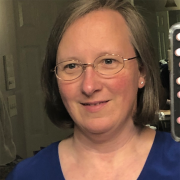Ethics Extravaganza 2021

Ethics Extravaganza 2021
June - July 2021
Our 7th online ethics conference
Ethics Extravaganza 2021, was made up of E CERP presentations from our conferences in the previous years plus some new presentations . iLactation offers 5.00 E CERPs for IBCLCs around the world to help satisfy the requirement for a minimum of 5 E CERPs on ethics and related topics for IBCLC recertification.
Some of the presentations for Ethics Extravaganza are drawn from previous iLactation conferences. Anyone is welcome to register, but please note that for IBLCE re-certification, you can claim only for presentations that you have not viewed previously. CLCs can also use these CERPs for re-certification.
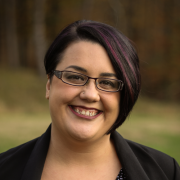
Our digital world: the ethics of breastfeeding support through social media for Millennials
Stephanie Hutchinson, MBA, BS, IBCLC - Read moreOur digital world: the ethics of breastfeeding support through social media for Millennials
Stephanie Hutchinson, MBA, BS, IBCLC
Stephanie Hutchinson began her journey into lactation after the birth of her first child, Chloe. She quickly realized there were no avenues of lactation support in her area and unfortunately did not reach her goals. With her second child, Jaycee, she was determined to surpass her goals and took to educating herself. After the birth of Jaycee, Stephanie was asked to apply to become a breastfeeding peer helper at her local WIC office, the first in the county. Through her time as a breastfeeding peer supporter, Stephanie also took LEC’s Certified Lactation Specialist course and became a CLS. She went on to obtain her CLC and then IBCLC. Education wise, Stephanie has a diverse background with her undergraduate studies in Communications and Leadership, with emphasis on Maternal Child Health: Lactation Consulting. In 2016, Stephanie founded the Appalachian Breastfeeding Network, a nonprofit organization comprising of 13 states in Appalachia. It was through this venture that she sought higher learning in business. Stephanie graduated with her MBA in 2019.
Stephanie is the awardee of several awards namely Ohio Lactation Consultant Association’s Outstanding Peer Helper, Ohio Lactation Consultant Association’s Outstanding Innovation as a Cultural Change Agent, United States Lactation Consultant Association’s Terry Jo Curtis award and the United States Breastfeeding Committee’s Emerging Leader.
She currently brings a voice to Appalachia and the specific barriers to breastfeeding and access to care in rural healthcare by presenting at national and international conferences, researching with University of North Carolina, and co-authoring an Appalachian birth folklore book.
Our digital world: the ethics of breastfeeding support through social media for millennials
Today’s new parent lives and breathes technology. A generation that has grown up with new and exciting innovations enjoys having everything right at their fingertips. It is no surprise that new mothers and parents get a lot of information right from their mobile devices. At a quick glance, this is an exciting and positive change in the way we can reach and education families of new babies. However, what about HIPAA laws and privacy protection. Where do we draw the line? This interactive session will discuss what the ethics are with answering questions through social media as well as give a clear definition to the attendee of how to approach an online consultation. Attendees will learn what makes Millennials and Gen Z parents tick and how to best promote and support breastfeeding along the way.
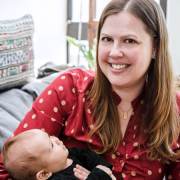
Repairing the leaks in the boat: privacy risk assessment for digital and online communications
Annie Frisbie, MA, IBCLC - Read moreRepairing the leaks in the boat: privacy risk assessment for digital and online communications
Annie Frisbie, MA, IBCLC
Annie Frisbie has been an IBCLC in private practice since 2011. She is the author of Paperless Private Practice for Lactation Consultants, and Lactation Private Practice: From Start to Strong, and the creator of the Lactation Private Practice Essential Toolkit. She is the cohost of the Lactation Business Coaching Podcast and a conference speaker on privacy, informed consent, and the business of private practice.
In 2018 she was honored with the US Lactation Consultant Association’s President’s Award, “awarding those that demonstrate extraordinary service to the association and profession.”
She is a produced screenwriter and proud member of the Writers Guild of America, East. She has a BA from Franklin and Marshall College, and an MA in Cinema Studies from New York University, USA. In a previous life she was a film critic. She lives with her husband and their two children in Queens, New York, USA.
Repairing the leaks in the boat: privacy risk assessment for digital and online communications
From the very first contact with a potential new client through scheduling, charting, and reporting all the way to tracking client outcomes through weaning, technology offers the lactation consultant powerful tools for efficiency, productivity, and improving client self-efficacy. These tools all have the potential to expose your client’s private information when used incorrectly.
As a lactation consultant, not only do you have an ethical obligation per the IBLCE Code of Professional Conduct to protect client privacy, you also have legal obligations under your country’s applicable laws. Whether you are 100% paperless or have a preference for pen and paper, chances are you are using at least one cloud-based app or service–and you could be using them in a way that puts you in breach of privacy laws–even if the product says it is compliant.
In this session, you:
● Learnt specific strategies to protect client privacy from the moment of first contact, through evaluating tools for communications and documentation
● Evaluated the risks and benefits of popular cloud-based tools for healthcare providers
● Understood how to assess your own privacy compliance and repair any breaches you find
By understanding what privacy actually means in practice–not just theory–you can develop and implement a privacy risk assessment specific to your practice setting, client demographic, level of tech proficiency, and clinical style.
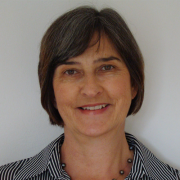
To pay or not to pay? The ethics behind paying mothers for donor milk
Penny Reimers, PhD, RN, IBCLC - Read moreTo pay or not to pay? The ethics behind paying mothers for donor milk
Penny Reimers, PhD, RN, IBCLC
Dr Penny Reimers is a registered nurse, midwife and International Board-Certified Lactation Consultant. She was a founder member of the Human Milk Banking Association of South Africa and supported the roll out of donor milk banks in KwaZulu Natal. She ran a community based human milk bank in Durban, conducted research on ways to support breastfeeding and worked in research and development on a mobile human milk pasteurisation system in the Department of Paediatrics at the University of KwaZulu Natal. She has authored/co-authored articles on breastfeeding and donor milk banking. She is currently based in the UK, is a member of the Lactation Consultants of Great Britain and serves as a Lactation Consultant for Parent Cloud while continuing her research interests in donor milk banking in South Africa.
To pay or not to pay? The ethics behind paying mothers for donor milk
The last decade has brought an explosion of research and interest into the properties in human milk and have made it a much sought-after commodity. The growth of donor milk banking globally has reduced infant morbidity and mortality by providing life-saving human milk for the most vulnerable infants. For-profit milk banks are also emerging and the demand for donor mothers and their precious ‘liquid gold ‘is too. Opinions on the ethics of paying donor mothers are polarised. Should compassion and altruism be the motivation for donations? Interesting comparisons have been made with organ donation and blood banking. With the sale of human milk largely unregulated, there are growing concerns around the possible exploitation of women in low resource countries by for-profit milk banks. Global breastfeeding rates are low, efforts should be directed at empowering and supporting women to breastfeed, providing them with adequate maternity leave, acknowledging the important role breastfeeding plays in their health and that of their infant.
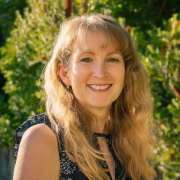
40 Years of the WHO International Code: what is it, why does it exist, and how does it protect the rights of children and women?
Karleen Gribble, PhD, BRurSc, CertIV Breastfeeding Education (Counselling) and (Community) - Read more40 Years of the WHO International Code: what is it, why does it exist, and how does it protect the rights of children and women?
Karleen Gribble, PhD, BRurSc, CertIV Breastfeeding Education (Counselling), Cert IV Breastfeeding Education (Community)
Karleen Gribble is an Adjunct Associate Professor in the School of Nursing and Midwifery at Western Sydney University. Her interests include infant and young child feeding in emergencies, regulation of the marketing of breastmilk substitutes, child rights, parenting and care of maltreated children, caregiver-child and child-caregiver attachment, adoption reform, and treatment of infants within the child protection, immigration detention, and criminal justice systems. She has published research, provided media commentary, contributed to government enquiries, provided expert opinion for courts, and engaged in training of health professionals, social workers, and humanitarian workers on these subjects. Karleen passionately advocates for recognition of the importance of mothers to their infants and works to create environments that support breastfeeding and the mother-infant relationship, particularly in situations of adversity. Karleen is also an Australian Breastfeeding Association Community Educator and Breastfeeding Counsellor.
40 Years of the WHO International Code: what is it, why does it exist, and how does it protect the rights of children and women?
The WHO International Code was adopted by the World Health Assembly in 1981 and has since been strengthened by 20 subsequent Resolutions. But what is it, how did it come about, how does it protect the rights of children and women, and what are the responsibilities of individuals and organisations under the Code? This presentation will answer all of these questions and clearly show how, more than anything else the WHO International Code has enabled infants to be breastfed.
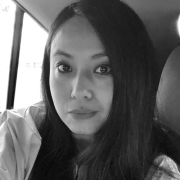
Old tricks, new opportunities: how companies violate the International Code of Marketing of Breast-milk Substitutes and undermine maternal and child health during the COVID-19 pandemic
Constance Ching, MSW - Read moreOld tricks, new opportunities: how companies violate the International Code of Marketing of Breast-milk Substitutes and undermine maternal and child health during the COVID-19 pandemic
Constance Ching, MSW
Constance Ching currently works for Alive & Thrive (FHI 360), providing technical support in Code advocacy and improved implementation in the ASEAN region. Prior to that, she worked for IBFAN-ICDC, was involved in capacity building with governments, UN agencies and NGOs on Code implementation and monitoring. Constance also participated in the World Health Assembly and other global forums to advocate for stronger Code-related measures. Her other work experiences include supervising a university-wide service-learning program in Hong Kong and managing community programs for homeless people living with HIV/AIDS and mental illness in New York City, USA. She is currently based in Penang, Malaysia.
Old tricks, new opportunities: how companies violate the International Code of Marketing of Breast-milk Substitutes and undermine maternal and child health during the COVID-19 pandemic
The COVID-19 pandemic has contributed to disruptions in the health, food and economic systems, exacerbating infant and young child malnutrition and mortality. It is a time when breastfeeding is especially critical for maternal and child health and survival. Yet, formula companies are capitalizing on the public health crisis to promote their products and undermine breastfeeding, violating the International Code of Breast-milk Substitutes. Tactics include using fears as a springboard for health claims and appearing in solidarity with the public on the fight against COVID-19. In this presentation the speaker will examine themes of companies’ aggressive and unethical marketing tactics during the COVID-19 pandemic based on findings from 14 countries and 9 companies. Implications for health workers, programs and policy, including challenges in Code implementation and recommended actions, will also be discussed.

